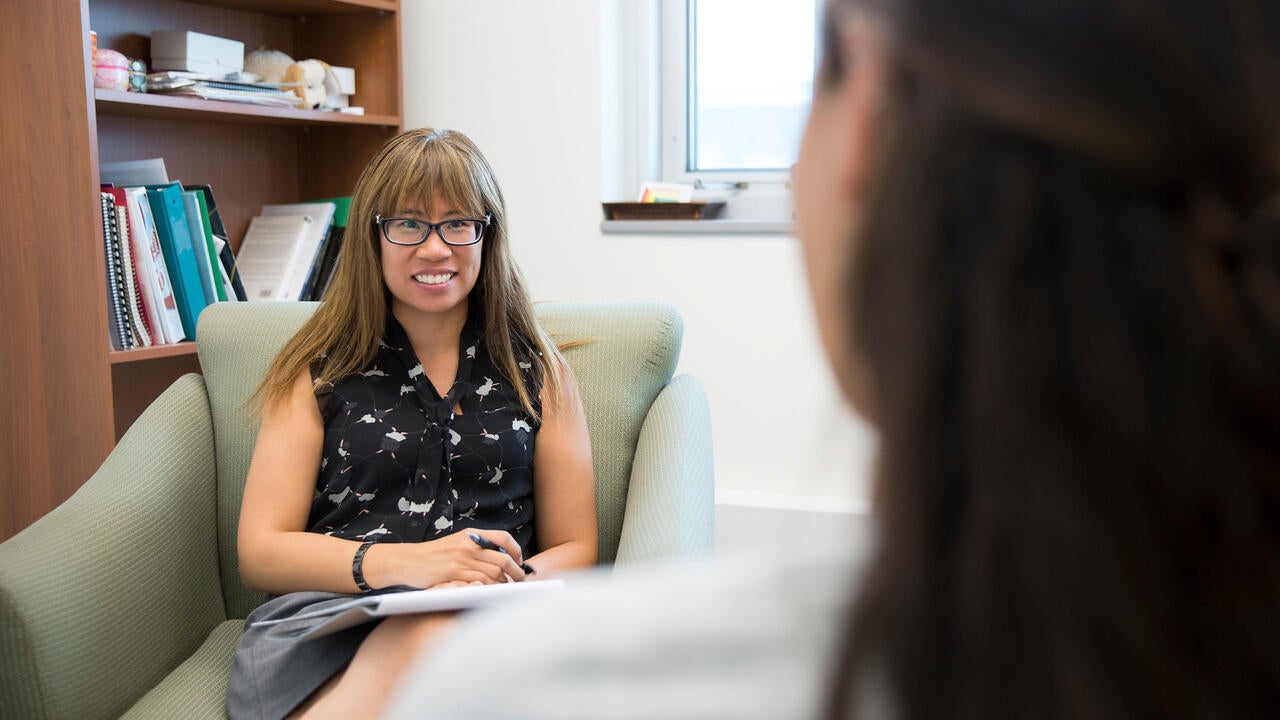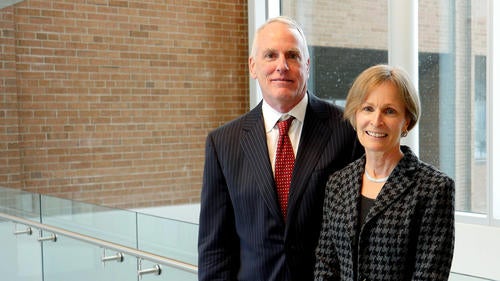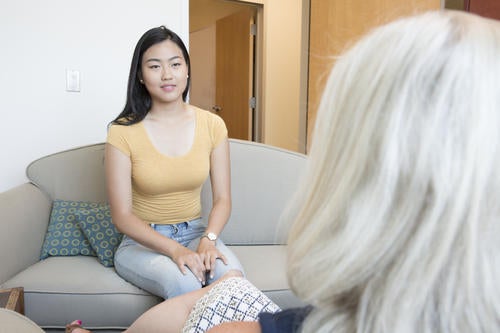
Increasing support for students during COVID-19
$1M gift adds wellness counsellors to co-operative education program, inspiring $200,000 addition in campus funds

$1M gift adds wellness counsellors to co-operative education program, inspiring $200,000 addition in campus funds
By Claire Mastrangelo Office of AdvancementNew student counsellor positions and a digital virtual care tool will expand the wellness service offerings for co-operative education students at the University of Waterloo. The new services come at a time of heightened uncertainty for students, as rapid changes in response to COVID-19 compound the stresses associated with co-op terms.
One-on-one counselling is underway to help students prepare for the challenges they face during work terms — including complications arising from the pandemic. Students now have faster access to mental health and wellness support through phone and virtual consultation. The digital tool enables students to interact securely with campus wellness practitioners using video-calling technology.
“The health and well-being of our students is and will always be our top priority,” says Feridun Hamdullahpur, president and vice-chancellor. “Our world is currently being faced with a tremendous amount of change and uncertainty and our students are not immune to these pressures. Waterloo is here for them. The creation of these additional counsellor positions will ensure that our remarkable students are well-supported whether they are taking advantage of a co-op position or working diligently on their academics.”

Donors Neil and Gisele Murdoch
The counsellor positions are made possible by a generous $1 million gift from Neil and Gisele Murdoch, parents of Waterloo alumni.
“The University of Waterloo is a world class institution featuring a renowned co-op program,” say Neil and Gisele Murdoch in a joint statement. “Student mental health is important to us and our family. We are pleased to support this mental health initiative to ease student stress and promote mental well-being throughout the transitions inherent to the co-op experience.”
Building on the couple’s generous donation, the Student Services Advisory Committee (SSAC) has approved funding of $200,000 for an additional counsellor position as well as the virtual health care service. The SSAC reviews all aspects of the services supported by the Student Services Fee. This was one of a very few proposals that were approved by the committee.

Co-op terms can present new challenges for students, which have been exacerbated by COVID-19 and its impact on the job market. Students face stiff competition for positions and undergo rigorous interview processes. While on co-op, students can feel removed from their peers, and thus have less social support than they do during their academic terms. Dealing with negative emotions while being isolated can exacerbate mental health symptoms and hurt students’ academic performance. In an analysis conducted by Campus Wellness before the pandemic, stress associated with co-op terms was found to be among the top reasons for mental health-related posts on social media.
The new counsellor positions extend Waterloo’s longstanding commitment to student wellness. In 2018, the University adopted the Okanagan Charter, a framework that calls upon post-secondary institutions to embed health into all aspects of campus culture. In June 2019, Waterloo launched the Wellness Collaborative, a cross-campus partnership that will oversee the implementation of the University’s Okanagan Charter commitments.
“The co-operative education program is an essential part of Waterloo’s unique student experience and it’s important that we meet the health and well-being needs of our co-op students,” says Chris Read, associate provost, students. “These counsellors will help our students make a supportive transition into co-op terms and embrace the challenges of their work placement during this uncertain time.”
By making a gift to the University’s student wellness fund, you can enable programs like this one, which help to create a caring and empowering environment for our students.

Read more
Upside Robotics secures new funding to accelerate the future of sustainable farming

Read more
Discover the meticulous work that uncovered Black stories on campus and preserved them for the future

Read more
A message from the President and Vice-Chancellor
The University of Waterloo acknowledges that much of our work takes place on the traditional territory of the Neutral, Anishinaabeg, and Haudenosaunee peoples. Our main campus is situated on the Haldimand Tract, the land granted to the Six Nations that includes six miles on each side of the Grand River. Our active work toward reconciliation takes place across our campuses through research, learning, teaching, and community building, and is co-ordinated within the Office of Indigenous Relations.